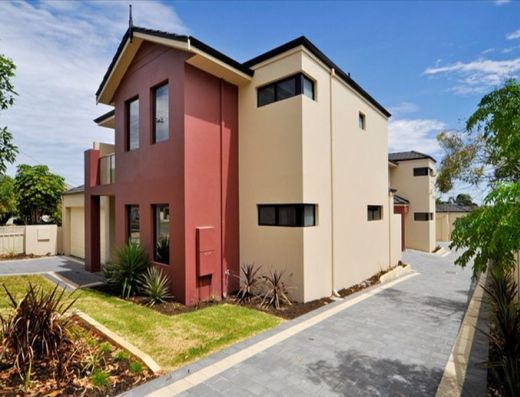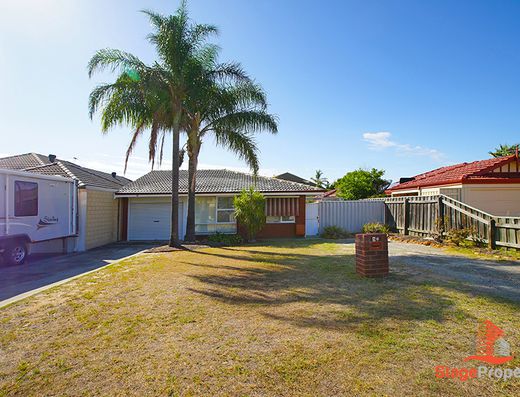Coronavirus Australia: WA, NT, ACT economies may fare better post-COVID-19
Australia’s finances are taking a thumping but some states’ economies may fare better than others – particularly if China can keep coronavirus under control.
The economic news is grim with warnings of 10 per cent unemployment in the June quarter, weak economic growth and a fall in property prices as Australia navigates its way through the coronavirus pandemic.
Major banks are expecting billions of dollars in defaults on loans that will simply never be paid back by struggling customers.
Treasury secretary Dr Steven Kennedy said Australia “had never seen an economic shock of this speed and magnitude”.
But a leading economist has said it’s possible the shock could be cushioned in some states more than others.
Western Australia and the ACT are among the areas that may fare better post-COVID-19 while New South Wales and Victoria might struggle.
Commonwealth Bank yesterday released its quarterly “state of the states” report that measures Australia’s economies on metrics including retail spending, unemployment, population growth, house prices, house building and infrastructure.
This quarter’s analysis gives an indicator of how strong Australia’s states were heading into the pandemic.
Victoria remained Australia’s strongest performing economy but now shares that accolade with Tasmania. The Apple Isle hasn’t been top of the charts for more than a decade.
The ACT has overtaken NSW to slide into third place while the Northern Territory is bottom of the back.

Craig James, chief economist of CommSec, CBA’s stockbroking arm, said Victoria and NSW were losing ground and that had allowed smaller states to hustle into the top flight.
“Population growth in NSW has slowed to its lowest in seven years and Victoria to its slowest for seven and half years and that has taken some of the momentum out of their economies,” he told news.com.au.
“That slowing in population growth in Victoria and NSW has meant a shortfall in dwellings has now caught up with demand.”
In both states, this has led to the rate of new residential development construction, a key indicator on the CommSec index, to be at six-year lows.
In Tasmania, relative population growth is far exceeding its average rate over the last decade which has seen a surge in new home building.
POST COVID-19 ECONOMIC OUTLOOK
But the figures for the last quarter are more or less irrelevant now due to the economic kick to the guts that coronavirus is currently meting out to Australia.
The Organisation for Economic Co-operation and Development has said lockdowns similar to Australia’s can wipe out a quarter of all economic activity and take 2 per cent off annual gross domestic product for each month they are in place.
But even if the virus could be effectively managed and the nation’s economic machinery could start cranking again, some areas such as international tourism and education as well as immigration are likely to remain limited for months.
Mr James said there could be a silver lining for some states if China continues to manage the spread of the virus within its borders while opening up the economy.
“If we do see a ramp up in activity in China to reinvigorate their economy, we may see an increase in infrastructure spending there,” he said.
“And of course, demand for steel means a demand for iron ore and other base metals and there may also be demand for natural gas.

“That may help the resources states of Western Australia, Queensland and the Northern Territory.”
If other countries also managed to control the virus and went on building sprees to give their economies a lift, these states could fare even better.
“The ACT may also be more insulated than most because of the demand for (public sector) staff. We know already it is already creating jobs in departments like Services Australia and the tax office.”

Also, in Canberra’s favour was that it was more overlooked by international tourists and so would be affected less if the borders remained closed for months to come. Conversely, a surge in domestic tourism could be in the ACT’s favour as people flock to its major museums and sights.
In Queensland, a lack of overseas tourists may outweigh some of the gains made in the resources sector. The world might crave what can be dug out of the state’s ground but tourists may still be lacking from the Gold Coast to the Great Barrier Reef.
Similarly, big spending international visitors are an important part of the economies of NSW, Victoria and Tasmania. From tours of the Opera House, to gambling at the Crown casino and traipsing around vineyards to picking up duty free handbags.
Another worry is if universities struggle, or are unable, to attract a new cohort of international students to fill campuses particularly in Brisbane, Melbourne or Sydney.
“To some extent the universities have been able to move through this period OK because they have been able to introduce remote learning but the question is how sustainable that is and that creates pressure on the industry,” said Mr James.
Of course, if mining does recover all of Australia will benefit financially. But another way out for the resource-poor south eastern states was to ramp up infrastructure spending, he said.
A number of big infrastructure projects in NSW and Victoria are in progress such as Sydney’s WestConnex motorways, the Sydney Metro and new light rail projects and Melbourne’s Metro rail tunnels, level crossing removals and North East link.
More may be needed though to give some oomph to the recovering states.
“In NSW and Victoria, it will really depend on how well the Government provides stimulus and the assistance businesses are going get. They will require a leg up time to get back on their feet,” Mr James said.
“One of the key areas of stimulus needed will be in getting infrastructure projects shovel ready to create jobs and give some momentum for the economy.”
The NSW Government had committed nearly $60 billion to transport infrastructure project over the next five years.
Last week, Transport Minister Andrew Constance said big transport projects could be the “silver bullet” to help the state’s economy to recover.
“The post-pandemic reset on infrastructure is very important but that doesn’t mean we slow the program down. If anything, we do the exact opposite – we go harder, we go faster,” he told the Sydney Morning Herald.
However, within the Government there has been discussion about whether all earmarked projects should now go-ahead such as plan to move the Powerhouse Museum from the CBD to Parramatta. There have been calls for the money to be spent on less grand local projects instead.
There have also been suggestions that some infrastructure plans should be scaled back if projected population growth slows in Sydney due to a coronavirus induced slump in immigration.









